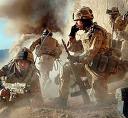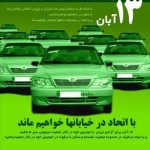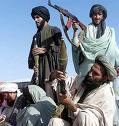Tuesday
Oct132009
Latest Iran Video: Protest at Tehran Azad University (13 October)
 Tuesday, October 13, 2009 at 17:44
Tuesday, October 13, 2009 at 17:44
Latest Iran Video: The Shiraz Protest Against Ahmadinejad (12 October)
The Latest from Iran (13 October): Government Threatens Karroubi
Receive our latest updates by email or RSS SUBSCRIBE TO OUR FEED
Buy Us A Cup of Coffee? Help Enduring America Expand Its Coverage and Analysis
Seven videos from the demonstrations
HomyLafayette's description: "They've arrested someone!" shouts one student. "Basiji get lost!" the crowd shouts, before singing a hymn of the student movement "Yareh Dabestani Man". Some Basijis can be seen filming the protesters.
[youtube]http://www.youtube.com/watch?v=a5k1jqM1bQ8[/youtube]
Basiji rough up student (from a set by HomyLafayette, who also has an excellent narrative of events)
[youtube]http://www.youtube.com/watch?v=Y7uySlfTZSc[/youtube]
"Free thought is not possible with beards and whiskers!"/"Ahmadi, you clown, the 63% [a reference to Ahmadinejad's alleged percent vote in the election] is here!"/"Long live Mousavi, may Karroubi stand long!"/"Oil money has been lost, it's been used to pay for Basijis!"
[youtube]http://www.youtube.com/watch?v=oUDwXhqukBc[/youtube]
Four of 12 videos of today's protest --- the full set is available via Mehdi Saharkhiz
[youtube]http://www.youtube.com/watch?v=v_EdcGbfFFM[/youtube]
[youtube]http://www.youtube.com/watch?v=yYzIaAotnio[/youtube]
[youtube]http://www.youtube.com/watch?v=kRzHuHrtP7M[/youtube]
[youtube]http://www.youtube.com/watch?v=MYqY4kU_5rE[/youtube]
The Latest from Iran (13 October): Government Threatens Karroubi
Receive our latest updates by email or RSS SUBSCRIBE TO OUR FEED
Buy Us A Cup of Coffee? Help Enduring America Expand Its Coverage and Analysis
Seven videos from the demonstrations
HomyLafayette's description: "They've arrested someone!" shouts one student. "Basiji get lost!" the crowd shouts, before singing a hymn of the student movement "Yareh Dabestani Man". Some Basijis can be seen filming the protesters.
[youtube]http://www.youtube.com/watch?v=a5k1jqM1bQ8[/youtube]
Basiji rough up student (from a set by HomyLafayette, who also has an excellent narrative of events)
[youtube]http://www.youtube.com/watch?v=Y7uySlfTZSc[/youtube]
"Free thought is not possible with beards and whiskers!"/"Ahmadi, you clown, the 63% [a reference to Ahmadinejad's alleged percent vote in the election] is here!"/"Long live Mousavi, may Karroubi stand long!"/"Oil money has been lost, it's been used to pay for Basijis!"
[youtube]http://www.youtube.com/watch?v=oUDwXhqukBc[/youtube]
Four of 12 videos of today's protest --- the full set is available via Mehdi Saharkhiz
[youtube]http://www.youtube.com/watch?v=v_EdcGbfFFM[/youtube]
[youtube]http://www.youtube.com/watch?v=yYzIaAotnio[/youtube]
[youtube]http://www.youtube.com/watch?v=kRzHuHrtP7M[/youtube]
[youtube]http://www.youtube.com/watch?v=MYqY4kU_5rE[/youtube]

 UPDATE 13 October 1900 GMT: For the love of Ed Murrow, is there a journalist out there who is not being led by the nose on the US-Russia Sanctions on Iran story?
UPDATE 13 October 1900 GMT: For the love of Ed Murrow, is there a journalist out there who is not being led by the nose on the US-Russia Sanctions on Iran story? It's a pity that Ann Scott Tyson and The Washington Post have wasted so much effort in bigging-up
It's a pity that Ann Scott Tyson and The Washington Post have wasted so much effort in bigging-up  1930 GMT: The reformist Assembly of Combatant Clergymen, paralleling the statements of Mohammad Khatami,
1930 GMT: The reformist Assembly of Combatant Clergymen, paralleling the statements of Mohammad Khatami,  Receive our latest updates by email or RSS
Receive our latest updates by email or RSS 